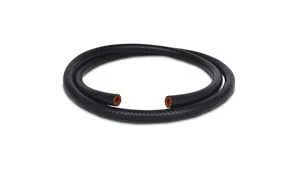brake line leaking
Dec . 21, 2024 20:00 Back to list
brake line leaking
Understanding Brake Line Leaks Causes, Consequences, and Solutions
When it comes to vehicle safety, few components are as crucial as the braking system. Among the various parts of this system, brake lines play a vital role in ensuring that brakes function effectively. However, a common issue that many vehicle owners may encounter is a leaking brake line. This article delves into the causes, consequences, and solutions for brake line leaks, providing you with essential knowledge for the safety of your vehicle.
What Are Brake Lines?
Brake lines are tubes that carry brake fluid from the master cylinder to the brake calipers or wheel cylinders. This fluid is essential for transmitting the force from the brake pedal to the braking components, allowing your vehicle to stop efficiently. Brake lines are typically made of steel or flexible rubber, designed to withstand high pressure and the harsh environment of automotive operations.
Causes of Brake Line Leaks
1. Corrosion and Rust One of the most common reasons for brake line leaks is corrosion, especially in older vehicles. Brake lines made of steel can begin to rust due to exposure to moisture, road salts, and other corrosive elements. Over time, this rust weakens the metal, leading to leaks.
2. Physical Damage Brake lines can also become damaged due to road hazards, such as potholes or debris. A strong impact can kink or crack the lines, resulting in leaks.
3. Improper Installation If brake lines are not installed correctly during maintenance or repair, they may be at risk of developing leaks. Issues can arise from poorly tightened fittings or using incompatible materials.
4. Wear and Tear Like any other component of a vehicle, brake lines are subject to wear over time. Continuous flexing of rubber brake lines can lead to wear, cracks, and ultimately, leakage.
Consequences of Brake Line Leaks
The implications of a leaking brake line can be severe. Even a small leak can lead to a significant loss of brake fluid, which may compromise the braking system's effectiveness. Here are some potential consequences
1. Reduced Braking Power As brake fluid escapes through the leak, it can cause a drop in hydraulic pressure, leading to a decreased ability to stop the vehicle.
2. Complete Brake Failure In extreme cases, a significant leak may result in complete brake failure, making it impossible to stop the vehicle. This situation poses an enormous risk to the driver, passengers, and others on the road.
brake line leaking

3. Increased Repair Costs Ignoring a brake line leak can lead to more extensive damage to the braking system, resulting in higher repair costs. Additionally, a compromised braking system can also affect other components, necessitating more extensive repairs.
Detecting Brake Line Leaks
Being proactive about brake maintenance is crucial. Here are some signs that may indicate a brake line leak
- Brake Warning Light Many modern vehicles come equipped with a dashboard warning light for braking issues. If this light activates, it should be checked immediately. - Soft or Spongy Brake Pedal If you notice that the brake pedal feels soft or spongy when pressed, it could indicate a loss of brake fluid due to a leak.
- Puddles or Spots Finding a puddle of fluid underneath your vehicle, particularly if it looks like oil (in the case of brake fluid, usually a clear or slightly brown liquid), may indicate a leak.
Solutions to Brake Line Leaks
If you suspect a brake line leak, it is vital to address the issue promptly. Here are steps to follow
1. Inspection Conduct a visual inspection of your brake lines for signs of damage, corrosion, or fluid leaks. Look for any discoloration or wet spots.
2. Professional Assistance If you have any doubts or discover a leak, consult a qualified mechanic as soon as possible. They can accurately diagnose the problem and recommend appropriate repairs.
3. Replacement In many cases, replacing the affected brake line will be the most effective solution. For older vehicles, consider upgrading to corrosion-resistant materials.
4. Regular Maintenance Implement a regular vehicle maintenance schedule that includes inspection of the braking system, focusing on brake lines and fluid levels.
Conclusion
Brake line leaks are a significant safety concern for any vehicle owner. Understanding their causes, recognizing the consequences, and knowing how to address them can make a vital difference in ensuring your safety on the road. Regular maintenance and a keen eye for potential issues can help prevent accidents and keep your brakes in optimal working condition. Always prioritize safety and don’t hesitate to seek professional assistance when needed.
